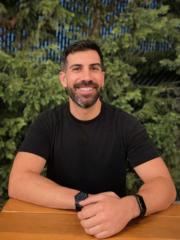152. Miami Promoter Nate - The Michael Sartain Podcast
If you want to learn to bring 10+ girls out several times a month…this is a REQUIRED podcast!
151. Rich Somers - The Michael Sartain Podcast
If you’d like to grow your business to $500,000+ per month…you MUST listen to this.
Truckin On Podcast
My high school football teammate interviews me 30 years later.
1-30 of 666

skool.com/men-of-action-free
Forge an elite social circle in any city… so you can make successful friends… and EFFORTLESSLY meet stunning, high-quality women. We are Men of Action
Powered by







